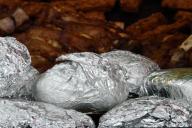There's something undeniably satisfying about biting into a perfectly seared piece of meat—the caramelized crust, the juicy interior, and the burst of flavors.
Achieving restaurant-quality results at home may seem like a daunting task, but with the right techniques and a little practice, you can master the art of searing meat.
Here are some secrets to help you elevate your culinary skills and create mouthwatering dishes.
Preheat the Pan
Choose a heavy-bottomed skillet or a cast-iron pan, as they retain and distribute heat evenly.
Oil and Sear
Add a high smoke point oil to the hot pan, such as vegetable oil or canola oil.

Swirl the oil to coat the pan evenly.
Carefully place the meat in the pan, ensuring it makes good contact with the surface.
Allow the meat to sear undisturbed for a few minutes until a golden-brown crust forms.
Achieve the Maillard Reaction
The Maillard reaction is a chemical reaction that occurs between amino acids and sugars when exposed to high heat, resulting in the browning and development of complex flavors.
To enhance the Maillard reaction, avoid moving the meat too frequently while searing.
Allow each side to develop a crust before flipping.
Use Butter and Aromatics
Towards the end of the searing process, add a knob of butter and aromatics like garlic, thyme, or rosemary to the pan.
Rest and Serve
Once the meat is seared to your desired doneness, remove it from the pan and let it rest on a cutting board for a few minutes.













